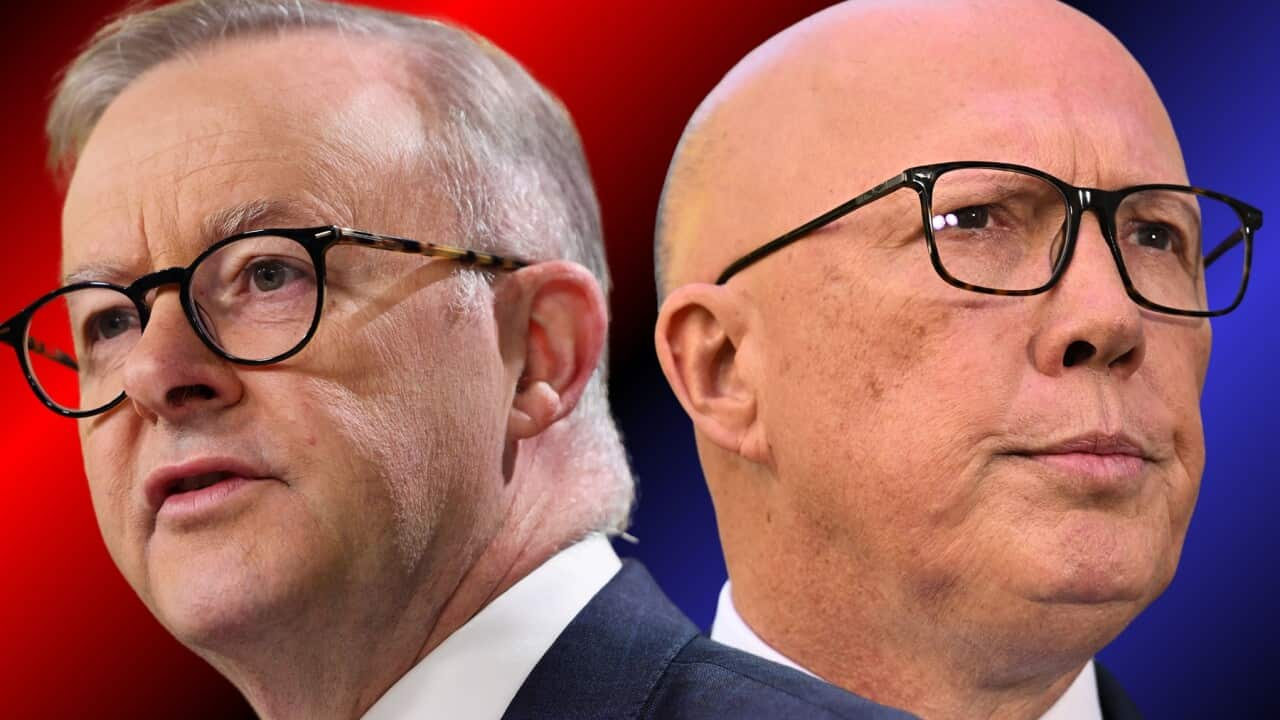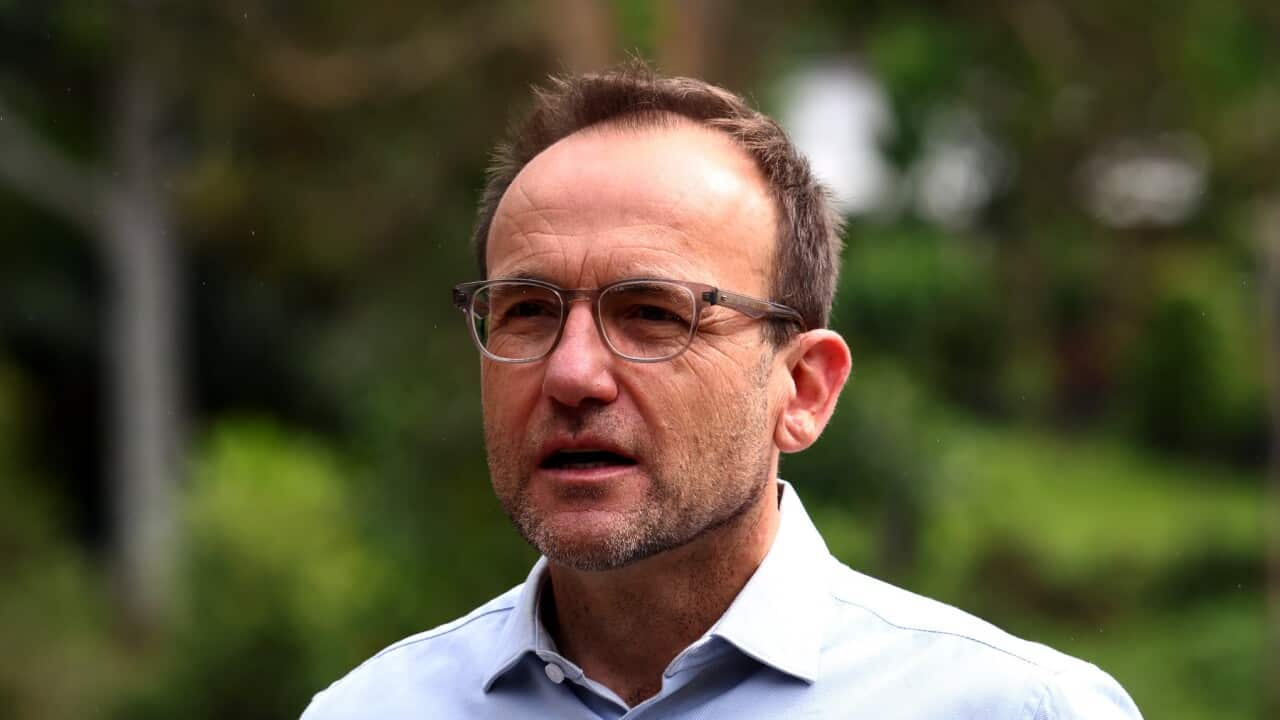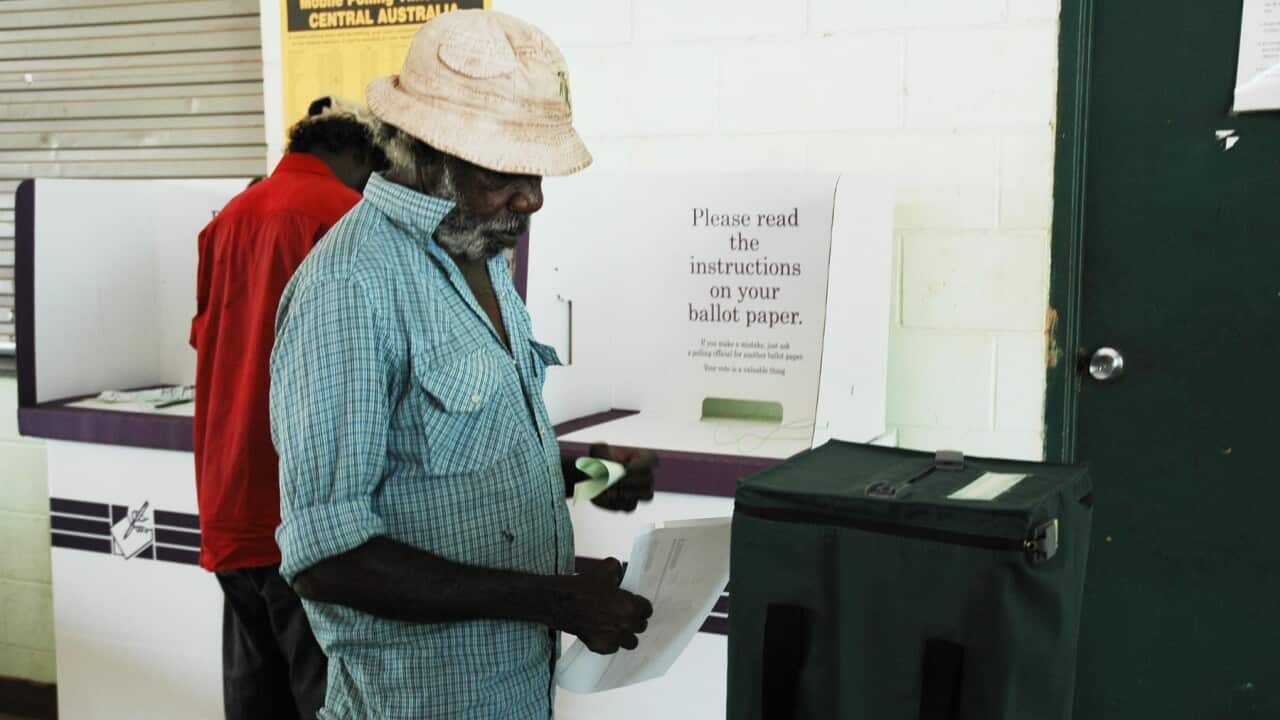TRANSCRIPT
It feels like a lifetime since the start of the campaigns.
ALBANESE: "This election is a choice between Labor's plan to keep building or Peter Dutton's promise to cut."
DUTTON: "This election really is about who can manage the economy. Who do you trust to manage the economy? Who do you trust to keep our country safe in uncertain times?"
BANDT: "A once in a generation chance, by voting Greens, to keep Peter Dutton out and get Labor to act."
The election was called on the 28th of March.
By the following day, both major party leaders were in Queensland.
Over the next five weeks, Anthony Albanese and Peter Dutton travelled to every state, and both leaders visited the Northern Territory.
The Prime Minister made it to the A-C-T, the Opposition Leader did not.
The Coalition's pitch: to get Australia back on track.
As living standards fall across the country, with high inflation and stagnant growth plaguing the economy, Peter Dutton has promised better economic management, and cutting waste.... including in the public service.
"We will reverse Labor’s increase of 41,000 Canberra public servants, because it will save about $7 billion a year ."
The initial plan was also to force public servants back into the office - but that was later abandoned.
"I've apologised for the decision that we took in relation to work from home. It only applied to Canberra. Labor's run this scare campaign and I think we bring an end to that today and we strongly support flexible workplace arrangements."
Cutting the fuel excise in half for 12 months is the basis of the Coalition's cost of living relief.
The opposition leader notched up more than a dozen trips to service stations across the country during the campaign.
The tax is worth about 50c per litre on fuel, with the proposal to come into effect from July 1st this year.
"There's 25 cents. That's 50 cents. Let's keep going. 25 cents every litre."
It's something that has the greatest benefits in the outer suburbs, which is where the Coalition believes it can win the most seats.
Other cost of living relief includes a one-off low- and middle-income tax offset worth up to $1,200 to be delivered at the end of the next financial year, and cuts to migration, which the Coalition says will help reduce financial pressure on households.
Peter Dutton has also vowed to bring down energy prices by adding nuclear to the grid in the long term, and a gas reservation plan in the short term.
"With our gas plan, we'll bring down the price of gas by 15 per cent. Gas is a key ingredient in the production of electricity."
The foundation of Labor's campaign has been Medicare ...
"At this election, this little card here, your Medicare card, is what is at stake. We know one of the big distinctions in Australian politics is Labor, which created Medicare and will strengthen Medicare."
... with visits to hospitals across the nation.
Senior party figures, including Treasurer Jim Chalmers, have been repeatedly claiming that:
"Peter Dutton will come after Medicare like he did last time."
Labor is promising around $9 billion towards Medicare for additional incentives for doctors to bulk bill more patients.
The party is also promising to open more Urgent Care Clinics, establish a '1800MEDICARE’ service for free after-hours telehealth consultations, cap the cost of PBS prescriptions to $25, and to expand access to free mental health services.
The Coalition has tried to take the sting out of the healthcare blitz, matching the $9 billion for Medicare, the $25 prescription promise, and announcing its own plan to double the number of Medicare subsidised psychologist vista a year.
Labor's campaign slogan of...
"Building Australia's Future."
... tries to evoke a sense of ambition that many feel has been lacking from Anthony Albanese's prime ministership so far.
It promises cost-of-living relief in the short term through a tax cut that's already passed parliament - that the Coalition says it will axe - and promised energy bill relief for the rest of the year, as well as a $1000 instant deduction on future tax returns.
In the longer term, there's a focus on housing with a plan to allow all first home buyers to purchase a place with a 5 per cent deposit, and funding to help reach the target of 1.2 million new homes built within five years.
Labor's also guaranteeing access to affordable childcare three days a week, getting rid of the activity test.
"A core part of that future is preparing for the generations to come by getting childcare right, by getting schooling right, and of course by giving the best options for the beginning of life."
The Coalition also has a plan for housing, allowing people to access super for a house deposit and claim some of the interest of their first home mortgage against tax for five years when buying a new home.
Meanwhile the Greens have been clear - if a minority government is to happen, they won't support Peter Dutton.
Instead, they want to force Labor to do more on issues like housing and healthcare.
Greens leader Adam Bandt is putting forward a plan to get rid of negative gearing, except for people with just one investment property, and scrap the capital gains tax concession.
"There are a huge numbers of people who are using this scheme to look after their retirement, people who have made plans for their future based on the levers available to them. These people aren’t billionaires or wealthy property investors, it’s not their fault the system is so broken and they make up more than two thirds of people who use negative gearing. We will protect these existing Mum and Dad investors by grandfathering negative gearing and capital gains tax for people with one investment property. That remains for them forever."
They're also pushing for dental to be added into Medicare.
Anthony Albanese has consistently ruled out working with the minor party, who went from one seat to four seats at the last election.
The three seats in South-East Queensland are all in play this election.
Before the start of the election, former Labor Treasurer and Deputy Prime Minister Wayne Swan had this to say:
"There's a myriad of challenges. There's been no no government in the last couple of years that's been re-elected internationally in this cost of living crisis, which is largely internationally induced. So it's, it's a tough environment to go to the people."
And that was true - across Europe in 2024, incumbent governments had largely been voted out, including in Germany, France, and the United Kingdom.
In the United States it was the same, with a change in government through the election of Donald Trump.
Prior to the election campaign, people were anticipating a similar response in Australia with people upset about falling living conditions turning to a conservative government for change.
But the Trump effect has played out differently than expected as seen in the Canadian election this week, with Mark Carney's Liberal Party holding on to power.
Trump's tariffs have wreaked havoc on global markets, with widespread global concerns about the way the administration has acted in its first 100 days.
Labor has navigated the storm on the global stage, whilst leaning into the comparison between Peter Dutton and Donald Trump.
Treasurer Jim Chalmers.
"He implements his policies directly from the United States. He wants the Americanisation of health, public service and education."
Peter Dutton has tried to position himself as the person who can stand up for Australia, saying Anthony Albanese isn't doing enough on tariffs, or national security, as Chinese military vessels spent time in international waters around Australia.
He's pitching that a Coalition government would keep Australia safe, promising an increase to the defence budget to 3 per cent of G-D-P within a decade, if elected.
"It will be an important expenditure, because we need to keep our country safe, and if we're to preserve peace and stability in our region, if we're to be a good ally with our partners, then Australia needs to invest in defence."
But the leaders' diplomatic reflexes were tested after a report claiming that Russia had asked Indonesia to base long-range aircraft at an air force base off the Indonesian province of Papua was published.
Peter Dutton was quick to call the Prime Minister out, saying it was a failure of the government that it was not informed about this before the information was made public, and telling the ABC...
DUTTON: "There's commentary that I have seen reported from the Indonesian spokesperson. And that's obviously come from the administration. There are reports of negotiations or discussions that have taken place between Russia and Indonesia."
REPORTER: "My question is where have you seen the Indonesian president confirm this? Aren't you verballing the Indonesian President?"
DUTTON: "There's comment that's come out of the administration, out of the Prabowo administration."
But there was no public comment from the Indonesian President, as pointed out by Foreign Minister Penny Wong.
"Mr Dutton saw a headline, and he didn't wait for the facts. He didn't wait for the facts. That's not the sort of man you want to be the Prime Minister of the country. He's simply, as I said this morning, too aggro (aggressive) and too reckless."
The Coalition has also struggled with lack of detail throughout the campaign.
There were few policies announced ahead of March 28th, with a plan to make the election pitch during the five-week period.
Whilst announcements have slowly been made, there has been criticism that they have lacked detail - as on overseas migration.
Although the Coalition has said it would reduce net overseas migration by 100,000 people a year, it hasn't exactly said how.
He's promising that details on migration will come if elected.
"We said that we'll take advice from the Department of Treasury and finance and central agencies about the settings within the economy and what we need to do."
He's making the same promise about where 41,000 public service jobs will be cut.
DUTTON: "We will look across government, in Canberra, to to identify where the additional places are."
JOURNO: "Is it fair that out of a public service of 200,000 people you're not gonna say which 41,000 of them might not have a job in six weeks?"
DUTTON: "I just think you want to get back to reality, and reality is here in the suburbs."
For Labor, Anthony Albanese has failed to garner the trust of some Australians - a feeling captured in comments made about falling off the stage at an event early in the campaign - and then later denying that he fell.
"REPORTER: "The worst moment of this campaign so far?"
ALBANESE: "Oh, probably falling off the stage."
REPORTER: "You said this morning at the breakfast event that falling off the stage had been the worst moment of the campaign for you, when you were in the Hunter Valley."
ALBANESE: "It was a joke. It was a joke. Chill out. Next."
REPORTER: "But at the time you said you hadn't fallen off the stage."
ALBANESE: "Well, I didn't fall. I did not - "
REPORTER: ".. you would like to clarify..."
As it stands, heading into the election, the Labor Party will lose its majority if it loses just two seats, whilst the Coalition needs to win 23 seats to get a majority.
There could be some movement on the record-sized crossbench - with three Greens seats at risk, one independent retiring and a couple of Teal seats up in the air, and new community independents in the contest across the country.
The only thing that's certain is that it will be a complicated election night - with anything possible over the weekend.













